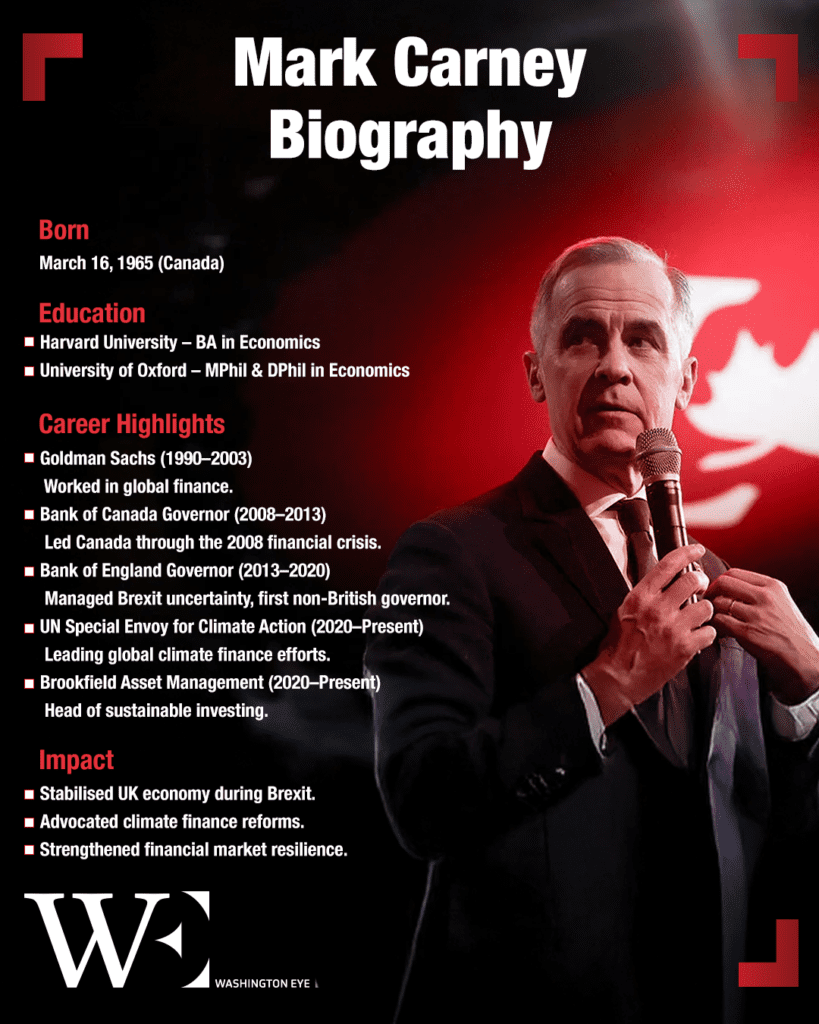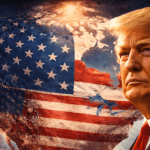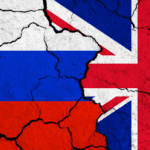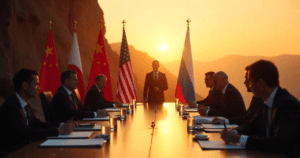In a historic political shift, Mark Carney, a distinguished economist and former central banker, was elected as Canada’s new prime minister, succeeding Justin Trudeau. Carney’s ascension comes at a pivotal moment as Canada faces escalating tensions with the United States under President Donald Trump’s administration.
In his inaugural address on March 9, 2025, Carney delivered a resolute message, criticizing Trump’s recent trade policies and affirming Canada’s sovereignty. Mark Carney, 59, brings a wealth of economic expertise to his new role. Born in Fort Smith, Northwest Territories, Carney holds a bachelor’s degree in economics from Harvard University and has had a notable career in both the private and public sectors.
He spent 13 years at Goldman Sachs before transitioning to public service, where he served as the Governor of the Bank of Canada and later the Bank of England. During his tenure at these institutions, Carney earned acclaim for his adept handling of financial crises, notably steering the Bank of England through the tumultuous period following the 2008 financial downturn. Despite his extensive experience in economics, Carney is a newcomer to the political arena, marking the first time a Canadian Prime Minister has taken office without prior experience as a Member of Parliament. His leadership bid was propelled by a desire to navigate Canada through current economic challenges, particularly those arising from strained relations with the United States.
A Victory Amidst Economic Turbulence
Carney secured the leadership of Canada’s ruling Liberal Party with a commanding 86% of the vote, defeating former Finance Minister Chrystia Freeland. His election comes at a time when Canada is grappling with a trade war initiated by President Trump, who has imposed 25% tariffs on Canadian imports and made controversial remarks suggesting the annexation of Canada as the 51st U.S. state. In his victory speech, Carney addressed these challenges head-on, criticizing Trump’s aggressive trade policies and dismissing the notion of U.S. annexation. He emphasized Canada’s sovereignty and readiness to defend its economic interests, stating that such threats “will destroy our way of life.” Carney’s ascent to leadership coincides with heightened tensions between Canada and the United States.
President Trump’s administration has adopted an adversarial stance, imposing tariffs and making inflammatory comments regarding Canada’s sovereignty. Trump has referred to Canada as the “51st state” and has threatened to redraw the U.S.-Canada border, actions that have been met with staunch opposition from Canadian officials. In response to these provocations, Carney has vowed to implement retaliatory tariffs and uphold Canada’s independence. Drawing on his extensive economic background, he has proposed measures to counteract U.S. tariffs and protect Canadian industries. Carney’s approach reflects a commitment to safeguarding Canada’s economic sovereignty and a readiness to confront external pressures.
Challenges Ahead: Navigating a Complex Political Landscape
Carney’s lack of political experience presents both opportunities and challenges. While his economic acumen is widely recognized, translating this expertise into political capital will require adept navigation of Canada’s complex political landscape. The upcoming general election, mandated to occur by October 20, poses a significant test, with polls indicating a tight race between the Liberal Party and the opposition Conservatives, led by Pierre Poilievre. Poilievre has also taken a firm stance against President Trump’s policies, proposing retaliatory tariffs and rejecting the notion of Canada becoming the 51st U.S. state.
He has emphasized strengthening interprovincial trade and reducing reliance on the United States, reflecting a broader consensus among Canadian leaders to assert the nation’s sovereignty in the face of external pressures. As Prime Minister, Mark Carney faces the formidable task of steering Canada through a period of economic uncertainty and geopolitical tension. His immediate priorities include addressing the challenges posed by U.S. trade policies, reinforcing Canada’s economic independence, and preparing for the forthcoming general election. Carney’s economic expertise positions him well to tackle these issues, but his success will depend on his ability to translate technical knowledge into effective political strategy.
In his inaugural address, Carney underscored the need for Canada to remain steadfast in defending its sovereignty and economic interests. He called for national unity in the face of external pressures and outlined a vision for a resilient and self-reliant Canada. As the nation embarks on this new chapter, Carney’s leadership will be pivotal in navigating the complexities of domestic and international politics. In conclusion, Mark Carney’s election as Canada’s Prime Minister represents a significant moment in the nation’s history.
His economic credentials and firm stance against U.S. aggression signal a commitment to protecting Canada’s sovereignty and economic well-being. As he transitions from central banker to head of government, Carney’s leadership will be crucial in guiding Canada through the challenges that lie ahead.















